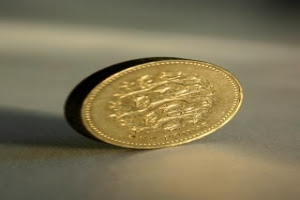Experienced calculus tutor - online and in-person. Schedule an affordable online calculus tutoring session.
Wednesday, October 26, 2016
Games and Probability I
Someone said with 100 years before Christ: "The king should ban gambling and betting in his kingdom because these vices can destroy kingdoms." And he was soooo right. We cannot deny that Mrs. chance was born in the halls of game of the 17th century. The early beginning of the mathematical theory of probability consisted to a large extent into solving problems proposed by the fortune games.
The fortune games represent much more than what the probabilities which are implied into these, can say. These games can be fun and interesting, they can make gains or result in disaster; they may give rise to a dinner with champagne or bring a pearl necklace, but can also bring suicide; they can be a very casual fun in a relaxing moment, in reasonable spending limits for fun, but sometimes they can become an addiction leading to redness of money which are perhaps necessary for more serious purposes.
Although the players learned without no doubt so much from the theory of probability, it is clear that they have never learned or accepted the main lesson which the theory gives regarding the fortune games. And this lesson says briefly: "if you continue to play you will inevitably lose." Let's talk about game systems. The book of Levinson "The science of chance" contains a very interesting and detailed analysis of multiple game systems, including the game called "Martingale" in which the bet doubles every time the player loses and comes back to the original normal bet after every win. Suppose you are using this system of doubling the bet in a game with a coin, the success being considered the tail; let's say the normal bet for every play will be one dollar. if the tail comes at the first throw you win one dollar, else if the first throw is a head then the second throw is a tail you will lose one dollar at the first play and win two dollars at the second play - so you will have a net gain of 1 dollar. If you get head the first 2 times and the third one you get the tail, then you will have three dollars loss in the first two throws, but win four dollars in the third one so again you will have a net gain of one dollar. No matter how many times the head will come up in the first throws when you get a tail the net gain will be of one dollar. The total gain will be given by the product of one dollar and the number of tails you get during the game.
All seems beautiful until here. However keep in mind two aspects of the law of great numbers and these are: the first one is that the relative frequency of getting a tail or head comes closer to 1/2 and the second aspect is that the difference between the absolute frequencies of getting the tail and the head tends to increase. So the excess of tails as of the heads can be big, if you are lucky, when the game stops and you will win a number of dollars which is slightly higher than half of the number of throws. However also it is equally probable that the number of heads to exceed so much the number of tails. What is the translation of this to the player? Except the case when you have very large resources and the courage to engage them against the bad luck that is after you during the game, you will be clearly ruined. Doubling the bet every time you'll come up with enormous amounts of money. Thank you
Subscribe to:
Post Comments (Atom)

No comments:
Post a Comment